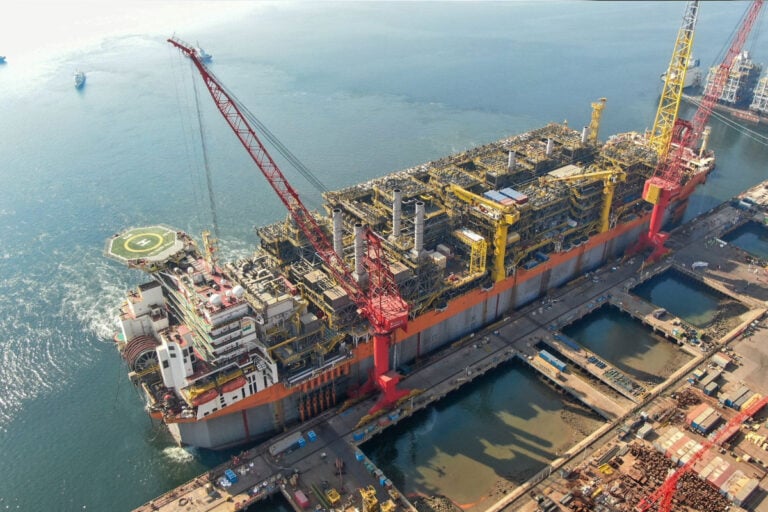The Sepetiba FPSO, operated by Shell Brasil, a subsidiary of Shell plc, represents a significant step forward in the development of the Mero field in the Santos Basin. With an impressive operational capacity of 12 million cubic meters of natural gas and 180,000 barrels of oil per day, the Sepetiba FPSO is a major player in the Brazilian energy sector. It is connected to six production wells and six injector wells, marking an important milestone in the exploitation of Brazil’s pre-salt.
Strategic partnerships and economic impact
Production of the Sepetiba FPSO is the fruit of a strategic partnership between several key players in the energy sector. Shell Brasil holds a 19.3% stake in the Mero unitized field, alongside Petrobras (operator, 38.6%), TotalEnergies (19.3%), CNPC (9.65%), CNOOC (9.65%) and PPSA (3.5%). This consortium underlines the importance of international collaboration in the development of energy resources and their impact on the Brazilian economy.
Technology and Sustainability
The Sepetiba FPSO incorporates state-of-the-art technologies to maximize production efficiency while reducing emissions. This project aligns with Shell’s Powering Progress strategy, which aims to harness efficient, competitive developments while ensuring secure, sustainable energy supplies. The construction and operation of the FPSO has been entrusted to SBM Offshore, underlining the importance of technical expertise in large-scale projects.
The start of production from the Sepetiba FPSO is a crucial milestone for the Brazilian energy sector, strengthening not only Brazil’s position in deepwater oil development but also its ability to meet global energy needs. This project illustrates the importance of strategic partnerships and technological innovation in the modern energy industry.





















